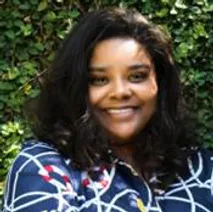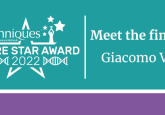The value of cohorting for students of color


Kimberly Jackson is the Head of the Chemistry and Biochemistry Department at Spelman College (GA, USA). Here, she discusses the value of cohorting for students of color and shares advice for mentors and mentees.
Spelman College is a historically Black college and undergraduate institution and has trained over six generations of women of African descent since 1881. Jackson co-founded the Living and Learning in an Interdisciplinary Networked Community of STEM Scholars (LINCS) at Spelman, to improve access to STEM careers for women of color through mentoring and professional development activities.
Could you tell me about your research?
I am a Professor of Chemistry and Biochemistry and Director of the Food Studies program at Spelman College. I have two major research projects. One is in cancer therapeutics, where I investigate natural products as therapies for advanced prostate cancer, and the other is advancing equity in STEM through designing networks and empowering women of color to attain PhDs or doctorate degrees in STEM fields.
How did your research in STEM equity start?
As part of my 20-year career at Spelman, I have trained women in cancer therapeutics. I started to notice that my cohorts of research students all started going into PhD programs. I thought this was interesting because if you look at trend data, you’ll see that fewer students of color, especially Black students, are getting PhDs in STEM fields. I knew we must be doing something special at Spelman, because, according to the National Science Foundation, we are the number one institution sending Black women to universities to get doctorate degrees in science and engineering.
I train anywhere from two to seven students a year in my laboratory, and they would either go onto medical or graduate school after graduating from Spelman. I would tell my students, “If you get your PhD, I am going to your hooding or to your dissertation defense.” So, for most of my students who have gotten their PhDs, I’ve flown out on my own dime, just to let them know that I’m forever committed to their growth as a scholar. That’s where my equity work began, just from my own research program.
Looking at higher education research, you can see that cohorting students as a high-impact practice works for students of color and that having social or professional networks is so important. Even if they don’t attend the same graduate school, they continue to be in contact with each other and support each other.
Could you tell me more about LINCS?
This particular scholarship program is only for undergraduates at Spelman College and started in 2015 with no money and a committed group of like-minded students. Together, Dr. Mentewab Ayalew, an Associate Professor of Biology, and I started the LINCS Scholars Program. We noticed that our research students would support each other and go into doctorate programs. We talk about ways that we can empower Black women scientists. And, how being a Black woman getting a doctorate degree in the natural sciences is a social justice issue.
We invite speakers to discuss difficult topics such as micro-aggression and a sense of belonging – all of the buzzwords that you hear today around diversity, equity and inclusion (DEI). We’d speak about: What can make you a compassionate scholar? What can make you an excellent mentee?
We’re now in our fourth cohort of this two-year living and learning community, and the results are astounding. We created this network as a full-circle program; our scholars know that their support system never ends, and they can always visit or call us.
This past year, we were awarded $1 million for our program, which we were very excited about. That was our first significant amount of money, so now, our scholars can receive financial support. We also have an evaluation team, who can help us tease out the data and make sure that we are making the gains we envision for this program.
It’s just… Wow!
What makes mentoring networks valuable?
Mentoring networks are an essential resource for all students. However, for students of color or diverse talent, these networks can serve as a support mechanism or outlet where students can recognize that they are not alone and that what they may be experiencing is structural racism. I believe this style of mentoring allows students the opportunity to see that they have a continuous support system. That’s the biggest thing for me.
What have been some of your proudest moments as a mentor?
There are so many! For the most part, knowing that my students are able to make it through their doctorate programs and feel a sense of accomplishment as a Black woman scientist makes what I do worth it. Even though we empower our scholars and give them the tools they need to combat all of the -isms, – racism, sexism, you name it – they sometimes still face challenges going into unwelcoming spaces. Once they graduate and they get their first jobs, they know they’ve made it. And occasionally, they’ll send me an email to keep me updated.
What advice do you have for mentees?
Communication. Make sure you have a clear understanding of the expectations of the relationship. Sometimes we go in with our own assumptions of what a mentor should do and how a mentee should be, so, if we never have those conversations, feelings get hurt. There needs to be communication and a conversation about the expectations of the relationship.
What advice do you have for a researcher looking to become a mentor?
I’m really into training and retooling. There are many programs out there that can give you the tools you need to sharpen your mentoring skills. Sometimes we need to go back and refresh what mentoring means. The NIH has a program called NRMN, where you can sign up for mentor training programs and students can look for mentors through this program.





